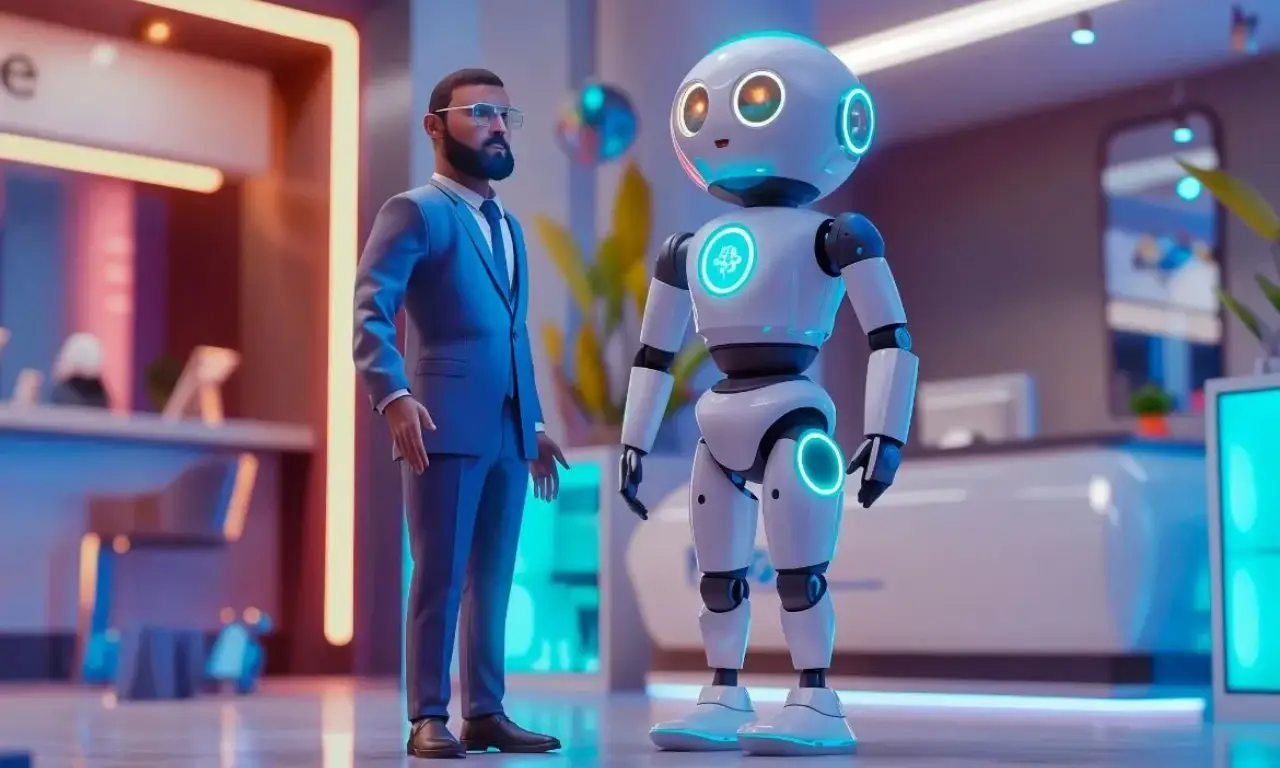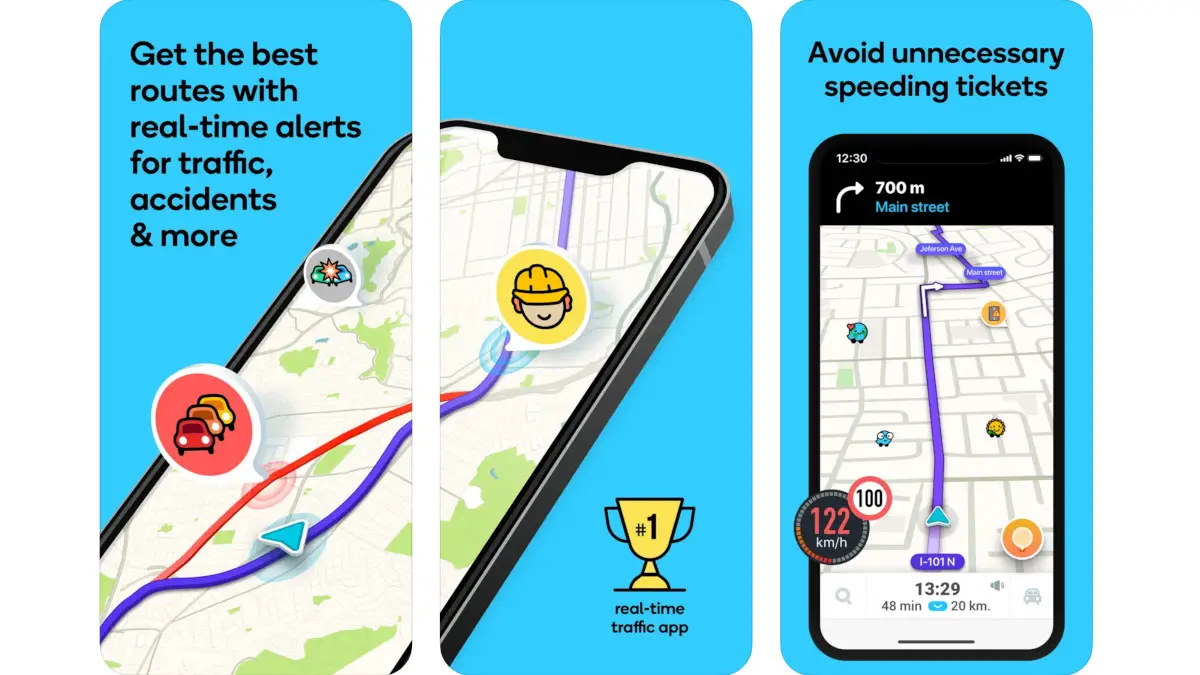AI Agent 101: How It Thinks, Acts, and Actually Gets Work Done

Ever wondered how your e-commerce site comes up with a shopping suggestion exactly when you are looking for it? Or, a customer-support chatbot replying to all your queries in the middle of the night?
That is how AI agents work. These might look like science fiction, but they’re not! The ultimate tech behind all these is an AI agent.
You can see them pop up everywhere. Whether it’s handling customer queries, managing calendars, or digging through mountains of data, AI agents are changing how we get things done.
They are working as the secret heroes, helping businesses work smarter and making your everyday tech feel a bit more human.
Let’s check out how AI virtual agents are changing businesses!
What is an AI agent (and why it isn’t “just a bot”)?
An AI agent is basically software that can look around, figure out what needs doing, and just… do it. No waiting for a human to tell it every step.
It takes in information like data, consumer behaviour, or real-time inputs, and processes it through a set of rules, logic, or defined goals. Based on that, the agent decides what action to take next, whether that’s sending an email, making an API call, or updating a system.
You’ll also hear terms like intelligent agent or autonomous AI system. That just means the agent can work on its own and make decisions without constant instructions.
These systems form the backbone of smart automation, enabling everything from smart scheduling to decision-making AI in high-stakes environments.
5 types of AI agents that you should know about
Not all AI agents are built the same. Some just react to inputs, others make decisions, and a few are even designed to evolve over time.
Here’s a breakdown of the major types of AI Agents you’ll come across:
1. Simple Reflex Agents
These agents act only based on what they see right now. They don’t remember anything or think ahead. Like a motion-sensor light it turns on when it detects movement, that’s it.
2. Model-Based Reflex Agents
These are a bit smarter. They not only react to what’s happening now, but also remember past situations to make better decisions. Like a robot vacuum that remembers where furniture is so it doesn’t keep bumping into it.
3. Goal-Based Agents
These agents have a goal in mind and make decisions to reach that goal. They compare different actions and pick the one that brings them closer to what they want. Like GPS it doesn’t just react, it plans the best route to get you to your destination.
4. Utility-Based Agents
Utiltity Based agents care about how good or useful an outcome is not just reaching a goal, but reaching it in the best way. Think of it like choosing the fastest, cheapest, or most comfortable way to travel not just any way.
5. Learning Agents
These are the smartest ones. They can learn from experience and get better over time. Like a smart assistant that improves its recommendations the more you use it, by understanding your habits.
Quick comparison of different types
If you’re still a bit confused (fair), here’s a quick side-by-side to make it easier:
| Type of AI agent | How it thinks | How it acts | Best for |
|---|---|---|---|
| Simple Reflex Agent | Doesn’t think. Just responds to what it sees right now | Instant reaction to inputs - no memory, no learning | Simple triggers, sensors, and basic bots |
| Goal-based agent | Focuses on outcomes and plans how to reach them | Chooses actions based on the current state + the desired goal | Navigation systems, planning tools |
| Cognitive agent | Understands context and reasons in real time | Adapts on the spot using logic and environmental cues | Dynamic decision-making, smart assistants |
| Learning AI agent | Learns from the past and evolves over time | Updates its own behaviour based on feedback and results | Long-term automation, evolving environments |
| Proactive AI | Predicts needs and patterns ahead of time | Acts before being prompted and takes initiative | Workflow automation, issue prevention |
How do AI agents work under the hood
If you're using or building an AI agent, it's helpful to know what makes it tick. These systems bring together personality, memory, tools, and language models to carry out tasks, make decisions, and improve over time.
Understanding how the parts work together lets you use them more intentionally, whether it's for automation, decision-making, or scaling operations.
Here’s what powers an agent inside out:
Persona: set the tone and purpose
Before an AI agent can do anything useful, you have to define who it is and what it's here to do. Its persona sets the tone, like how it speaks, how formal it is, what kind of decisions it should make, and how it handles edge cases.
If you’re building one, this is where you shape its role: a helpful assistant? A blunt analyst? A friendly customer service rep?
Action tip: Write a short, clear role description and communication guide. That becomes your agent’s personality baseline.
Memory: give it context that sticks
AI agents can access multiple kinds of memory to make interactions feel smarter and more relevant:
-
Short-term for current conversations
-
Long-term for past data and decisions
-
Episodic for event-based memory
-
Consensus for shared facts across agents
This helps these software agents respond like they remember, not just react.
Action tip: Decide what your agent should remember vs. what it shouldn’t. Set boundaries for privacy, session scope, and memory retrieval.
Tools: unlock real-world action
Tools are what let your AI-powered assistant actually do things. They can send emails, update databases, pull reports, or control devices. Teaching the agent when and how to use these tools turns it into a true decision-making AI, and not just a text box.
These tools can include:
-
APIs (e.g. Stripe for payments, Notion for content, Salesforce for CRM)
-
Internal systems (like dashboards, ticketing tools, inventory software)
-
Third-party apps (Google Calendar, Slack, Zapier, Trello)
-
Device controls (for IoT setups, smart home environments, or robotics)
Action tip: Map out the tools your agent needs access to, then define clear instructions or triggers for each one. If it shouldn’t touch something, tell it.
Model: the brain behind the agent
The large language model (LLM) is the agent’s core thinking engine. It processes input, reasons through decisions, and generates responses.
Paired with memory and tools, this model becomes part of a powerful agentic framework that can handle tasks from copywriting to data triage.
Action tip: Choose a model that matches your task complexity. For example, use GPT-4 for logic-heavy workflows, or a smaller model for lightweight assistants.
Benefits of AI agents for businesses
Autonomous AI systems like these agents are smarter and more specialised than regular solutions. They can learn and make better decisions, and thus would be useful in a growing business. Below are a few advantages they offer:
-
Efficiency through AI task execution: AI agents handle repetitive tasks like routing tickets, updating dashboards, or triggering workflows, without human oversight. This speeds things up and keeps teams focused on higher-value work.
-
Accuracy and intelligent automation: With clear logic, goal prioritisation, and data-driven reasoning, these AI-powered assistants reduce manual errors and maintain consistency across systems.
-
Scalability at speed: Whether it's handling 10 customer queries or 10,000, software agents scale effortlessly. They don’t bottleneck under pressure, making them ideal for fast-growing teams or enterprise environments.
-
Continuous improvement: A true adaptive AI agent learns from patterns, feedback, and outcomes, refining its behaviour over time. This means better decisions and fewer repetitive failures.
-
Cost optimisation: By reducing dependency on manual tasks and repetitive support roles, intelligent agents drive down operational costs while keeping quality intact.
AI agents vs chatbots vs agentic AI
A lot of people use chatbot, AI agent, and agentic AI interchangeably, but they’re not the same. If you're building automation or integrating AI into your workflows, knowing the difference helps you set the right expectations, choose the right tools, and design for actual impact.
Here’s a quick comparison to make things clear:
Still figuring out which one actually fits? As a venture builder, we don’t overcomplicate it. We just map the right setup to your business goals.
Sometimes, that’s a simple AI agent to handle tasks. Sometimes it’s a full agentic AI system running the show. Either way, it’s built to move you forward,
Real‑world AI agent examples (and what each proves)
You might not realise it, but AI agents are everywhere, recommending products to buy, sorting out your email inbox, and answering your queries.
Here are some real-world examples:
1. Amazon Alexa

When you use voice search to ask Alexa to turn off the lights or to look up a definition, it’s not just recognising your voice but also acting as a software agent.
It’s listening (input), understanding what you want (reasoning), and then connecting to tools (smart home systems, music apps) to follow through.
The AI agent here is reactive as it waits for a prompt, processes your intent using a language model, and takes action by triggering the right service.
It also uses memory to personalise responses (like remembering your preferred alarm or weather city), which edges it toward a proactive AI over time.
2. Netflix recommendation system

Netflix uses AI to suggest shows and movies based on your viewing history. It runs a smart system behind the scenes where different AI agents do different jobs.
One type, a cognitive agent, understands what kind of content you engage with, based on genre, time spent watching, past ratings, etc.
Meanwhile, an adaptive AI agent takes it further by learning from how your preferences shift over time. For instance, if you suddenly start watching documentaries instead of thrillers, it updates its recommendations accordingly.
3. Waze navigation app

Waze runs on a goal-based AI agent that has one job: get you from Point A to Point B as fast as possible. To do that, it senses real-time traffic data, roadblocks, and even user-submitted events like accidents.
The agent then weighs different routes, evaluates travel time, and reroutes you as needed, all in service of that end goal.
How GrowthJockey designs AI agents for real business impact
AI agents are smart digital assistants that help with decision-making and managing tasks effectively. The need for intelligent automation is increasing as businesses grow too fast with time. These advanced AI-powered assistants are here to meet that need.
Whether it’s basic tools or helpful assistants that manage entire workflows, the future is all about working smarter, faster, and more independently.
At GrowthJockey, we work with businesses to design and implement powerful AI systems that deliver real results. So, what are you waiting for?
FAQs on AI agents
1. What are the 5 types of AI agents?
The five common types of AI agents are reactive agents, proactive AI, utility-based agents, learning agents, and goal-based agents.
2. Is ChatGPT an AI agent?
No, ChatGPT is not considered an AI agent. It is a very efficient chatbot that works on the generative AI fundamentals.
3. What is the salary of an AI agent?
AI systems are automated bots that are software agents and not people. So, they don’t earn any salary. However, people who develop them are typically offered somewhere between Rs 9- 10k per month, according to Glassdoor.
4. Can AI agents write code?
Yes, it is possible for AI agents to write codes for you. However, since these are all automated, a human inspection is needed before taking the codes to work.








